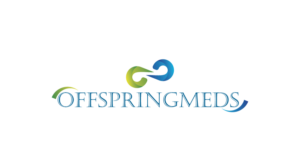Introduction: It is well acknowledged that education is a crucial tenet of both individual and society advancement. It plays a crucial part in forming people, giving them the knowledge, abilities, and values that promote personal development and advance society. In this essay, we examine the importance of education, emphasising its capacity for transformation and the numerous advantages it offers to both individuals and society.
Empowerment and Personal Development: Education increases a person’s knowledge base, capacity for critical thought, and problem-solving ability. It fosters creativity, curiosity, and a never-ending desire to learn, empowering people to adjust to new possibilities and difficulties throughout their lives. Education also promotes personal development, self-assurance, and a sense of fulfilment, empowering people to lead happy and meaningful lives.
Economic Opportunities: Education is a major factor in both social mobility and economic prosperity. It gives people the knowledge and credentials required to access improved job prospects, increased earning potential, and career advancement. An educated workforce boosts a country’s overall economic development by fostering innovation, productivity, and competitiveness.
Social and Civic Engagement: Education is essential for promoting inclusion, social cohesion, and civic engagement. It encourages respect for various cultures, viewpoints, and empathetic understanding of them. The ability to critically evaluate societal issues, participate in informed debates, and actively contribute to their communities are skills that people acquire through education. Democracy, human rights, and social justice are more likely to be valued in a society that prioritises education.
Health and Well-Being: The quality of one’s health and general well-being are directly impacted by education. It provides people with information about illness prevention, healthy lifestyle choices, and medical procedures. Additionally, education increases access to the knowledge and tools required for making decisions about nutrition, reproductive health, mental health, and substance misuse. People with higher levels of education are more likely to adopt healthier habits and experience better overall health results.
Sustainable Development: Education and sustainable development go hand in hand. It encourages environmental awareness, civic responsibility, and sustainable lifestyles. Education helps to create a more sustainable and environmentally conscious society by educating people about ecological issues, climate change, and the value of conservation.
Critical Thinking and Problem Solving: Education fosters critical thinking abilities, empowering people to assess data, assess evidence, and reach well-informed conclusions. It gives people the tools they need to solve problems while encouraging them to be imaginative, look at problems from several angles, and come up with creative solutions. These abilities are crucial for addressing complicated societal issues, promoting entrepreneurship, and advancing numerous disciplines.
In conclusion, education is a potent engine for societal, economic, and personal growth. It equips people with the knowledge, abilities, and values necessary for their own personal development, career opportunities, and social engagement. In addition to enhancing people’s lives and well-being, education also helps to build a more equitable, prosperous, and sustainable world. Societies can unleash the full potential of their population and set the way for a better future by investing in education.

